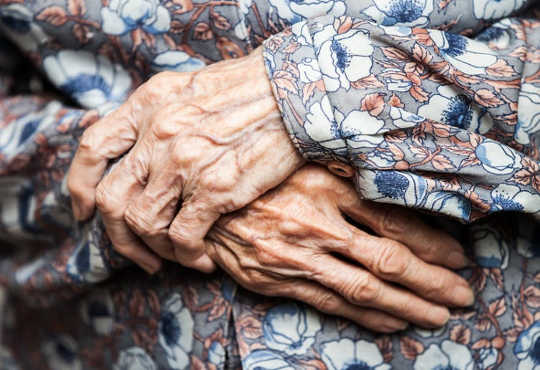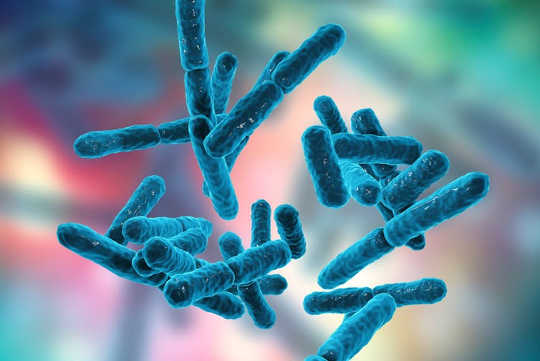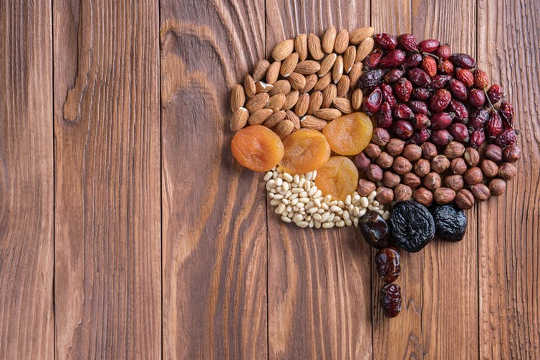- Marla Paul
- Read Time: 4 mins
 Researchers have developed a way to reliably predict which chronic pain patients will respond to a sugar placebo pill based on brain anatomy and psychological characteristics. Doctors may one day prescribe placebos that work as effectively as any painkiller for certain patients, the researchers’ new study suggests
Researchers have developed a way to reliably predict which chronic pain patients will respond to a sugar placebo pill based on brain anatomy and psychological characteristics. Doctors may one day prescribe placebos that work as effectively as any painkiller for certain patients, the researchers’ new study suggests




 Researchers have discovered evidence of the earliest brewmasters to date, a finding that might stir an old debate: What came first, beer or bread? In a cave in what is now Israel, scientists found beer-brewing innovations that they believe predate the early appearance of cultivated cereals in the Near East by several millennia.
Researchers have discovered evidence of the earliest brewmasters to date, a finding that might stir an old debate: What came first, beer or bread? In a cave in what is now Israel, scientists found beer-brewing innovations that they believe predate the early appearance of cultivated cereals in the Near East by several millennia. Two of every three US consumers surveyed report eating less of at least one type of meat, according to new research. “Many Americans continue to have strong preferences for meat,” says Roni Neff, an assistant professor of environmental health and engineering at Johns Hopkins University.
Two of every three US consumers surveyed report eating less of at least one type of meat, according to new research. “Many Americans continue to have strong preferences for meat,” says Roni Neff, an assistant professor of environmental health and engineering at Johns Hopkins University.





 Walking significantly lowers the risk of heart failure in older women, a new study shows. The study of more than 137,000 postmenopausal women aged 50 to 79 is the largest and most comprehensive to date that has evaluated physical activity within the context of heart failure prevention.
Walking significantly lowers the risk of heart failure in older women, a new study shows. The study of more than 137,000 postmenopausal women aged 50 to 79 is the largest and most comprehensive to date that has evaluated physical activity within the context of heart failure prevention. The sensation of sound occurs when the vibrations from sounds enter our ear and cause little hairlike structures – called hair cells – within our inner ear to move back and forth. The hair cells transform this movement into an electrical signal that the brain can use.
The sensation of sound occurs when the vibrations from sounds enter our ear and cause little hairlike structures – called hair cells – within our inner ear to move back and forth. The hair cells transform this movement into an electrical signal that the brain can use. Suicide rates in the United States have increased by 25-30 percent since 1999. This is particularly true for youth ages 12-24, with increases of approximately 30 percent over the same period. In Alachua County, Florida, where I teach and practice at the University of Florida, the base rate for suicides among youth ages 12-17 had been about five per 100,000 for many years, below the base national rate of 13 per 100,000. However, in the year 2017 that rate of completed suicides increased to 27 per 100,000, and for 2018 we are at a pace that will likely equal 2017.
Suicide rates in the United States have increased by 25-30 percent since 1999. This is particularly true for youth ages 12-24, with increases of approximately 30 percent over the same period. In Alachua County, Florida, where I teach and practice at the University of Florida, the base rate for suicides among youth ages 12-17 had been about five per 100,000 for many years, below the base national rate of 13 per 100,000. However, in the year 2017 that rate of completed suicides increased to 27 per 100,000, and for 2018 we are at a pace that will likely equal 2017.

 Your body’s internal clock – the circadian rhythm – regulates an enormous variety of processes: when you sleep and wake, when you’re hungry, when you’re most productive. Given its palpable effect on so much of our lives, it’s not surprising that it has an enormous impact on our health as well. Researchers have linked circadian health to the risk of diabetes, cardiovascular disease and neurodegeneration. It’s also known that the timing of meals and medicines can influence how they’re metabolized.
Your body’s internal clock – the circadian rhythm – regulates an enormous variety of processes: when you sleep and wake, when you’re hungry, when you’re most productive. Given its palpable effect on so much of our lives, it’s not surprising that it has an enormous impact on our health as well. Researchers have linked circadian health to the risk of diabetes, cardiovascular disease and neurodegeneration. It’s also known that the timing of meals and medicines can influence how they’re metabolized.

 No matter how much we try to minimise our exposure to respiratory viruses, it’s far more difficult in winter when we spend so much time in close proximity to other people.
No matter how much we try to minimise our exposure to respiratory viruses, it’s far more difficult in winter when we spend so much time in close proximity to other people.